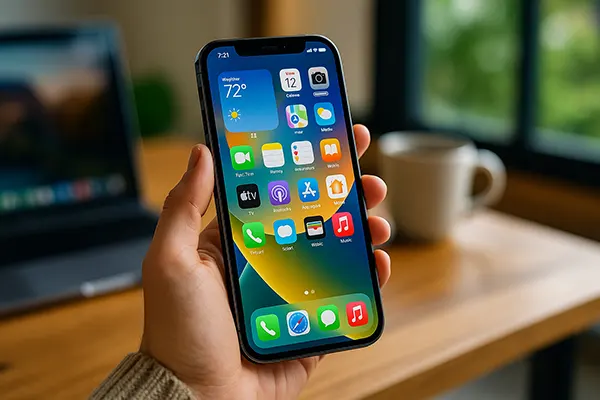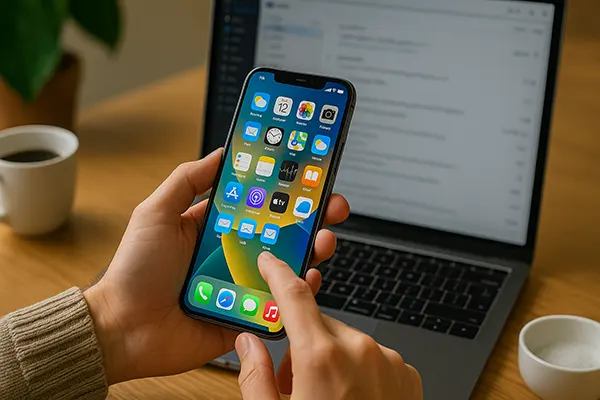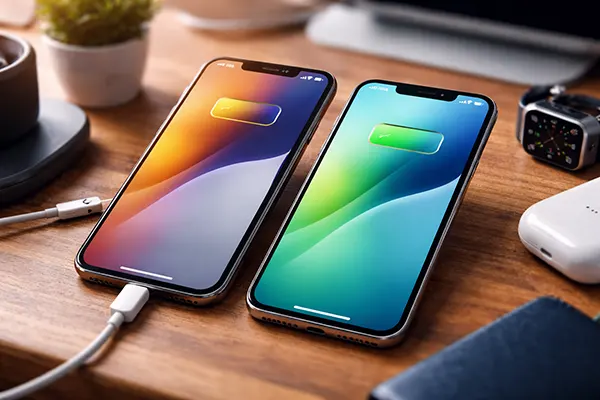Apple Intelligence in Daily Life: How the New AI System Transforms iPhone Use in 2025

Apple Intelligence has become one of the most significant upgrades for iPhone users in 2025. Unlike previous improvements that were limited to performance or hardware, this AI-driven system redefines the entire user experience. It integrates deeply into everyday tasks, making the iPhone a more adaptive, responsive, and personalised device for work, communication, and leisure.
Personalised Assistance and Everyday Efficiency
One of the key aspects of Apple Intelligence is its ability to understand user habits and preferences. The system learns patterns such as frequently used apps, typical commuting routes, and even health data to provide timely recommendations. For example, an iPhone can suggest the best time to leave for work based on real-time traffic while considering your calendar commitments.
This AI system also streamlines communication. By intelligently summarising emails, highlighting urgent messages, and providing suggested replies, it reduces the time spent managing digital correspondence. For professionals, this means increased productivity without being constantly tied to the inbox.
Additionally, Apple Intelligence integrates with the broader Apple ecosystem, making transitions between iPhone, iPad, and Mac seamless. Whether drafting a document, editing a photo, or joining a call, the system predicts what device you are most likely to use and adjusts accordingly.
Advanced Contextual Awareness
Apple Intelligence goes beyond simple automation by introducing contextual awareness. If you are in a meeting, it can silence notifications while keeping critical alerts visible. During travel, it adapts your device’s settings to focus on maps, translation tools, and local recommendations.
Privacy remains central. All AI-driven suggestions are processed on-device, ensuring that sensitive personal data does not leave the iPhone. This approach distinguishes Apple’s solution from cloud-reliant assistants and reinforces user trust.
For students and creatives, contextual awareness means the iPhone can act as a study partner or creative assistant, surfacing relevant research material or editing suggestions tailored to the project at hand.
Reinventing Communication and Creativity
Apple Intelligence enhances FaceTime, Messages, and third-party apps with smart features that make conversations more meaningful. Real-time transcription and translation remove language barriers, allowing international collaboration to happen naturally on an iPhone.
When it comes to content creation, the system empowers users with advanced image editing, video enhancements, and voice synthesis. These tools are not limited to professionals; they are designed to be intuitive, giving everyone the ability to produce high-quality content directly from their device.
Moreover, Apple Intelligence is integrated into Siri in a way that makes interactions more natural. Instead of rigid commands, users can ask multi-step, conversational queries, and Siri adapts to context without the need for repeated clarification.
Creative Tools for a New Era
The AI system supports generative features for photography, music, and writing. iPhone users can generate personalised photo albums, background scores for videos, or even refine drafts of written work without leaving the app they are working in.
Collaboration is also strengthened. Group projects can benefit from shared AI-generated notes, synchronised task lists, and intelligent reminders that adjust to team members’ schedules in real time.
By lowering the barrier to professional-level tools, Apple Intelligence ensures that creativity is no longer limited by technical skills but guided by the user’s imagination.

Health, Security, and Future Potential
Apple has positioned health and wellbeing as central to its strategy, and Apple Intelligence reinforces this direction. From monitoring sleep patterns to suggesting mindful breaks during long work hours, the iPhone acts as a proactive wellness companion.
Security is another critical component. With on-device processing and end-to-end encryption, sensitive data such as health metrics, financial transactions, and private conversations remain secure. Apple Intelligence continuously monitors for unusual activity, helping protect users from digital threats.
Looking forward, the system is expected to evolve with updates that introduce new layers of personalisation. This may include deeper integration with smart home devices, expanded support for medical applications, and more advanced predictive analytics for lifestyle management.
The Road Ahead
By 2025, Apple Intelligence has already established itself as more than a technological upgrade; it is a shift in how people interact with their devices. With AI seamlessly embedded into daily routines, the iPhone is no longer just a smartphone but a truly adaptive companion.
The combination of innovation, privacy-first principles, and practical features positions Apple as a leader in consumer AI. Other companies may follow with their own systems, but Apple’s integration of intelligence into its ecosystem sets a high standard.
For users, the benefits are immediate and practical: less time spent on repetitive tasks, stronger security, improved wellbeing, and more opportunities to create and connect. This is the essence of Apple Intelligence in everyday life.

